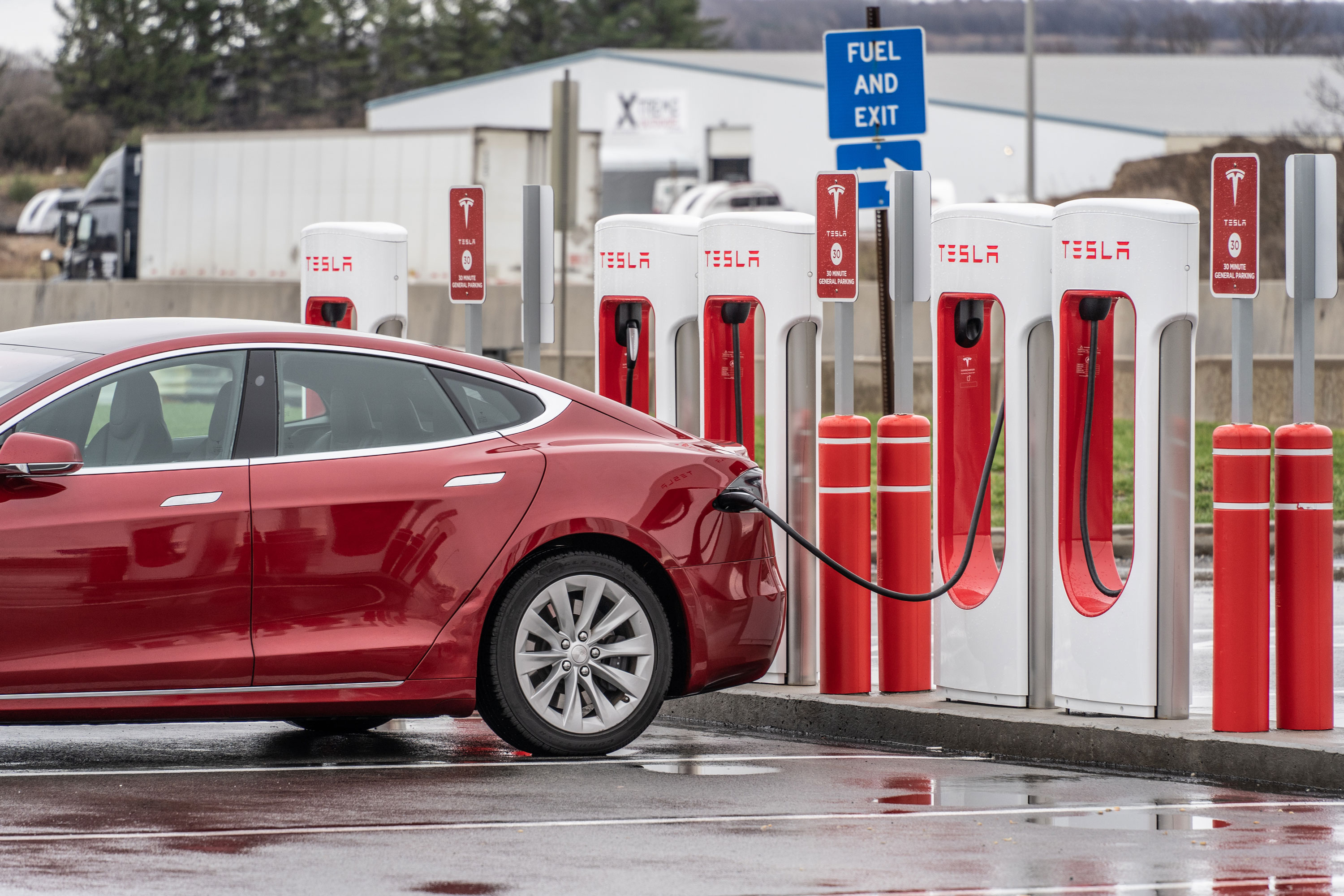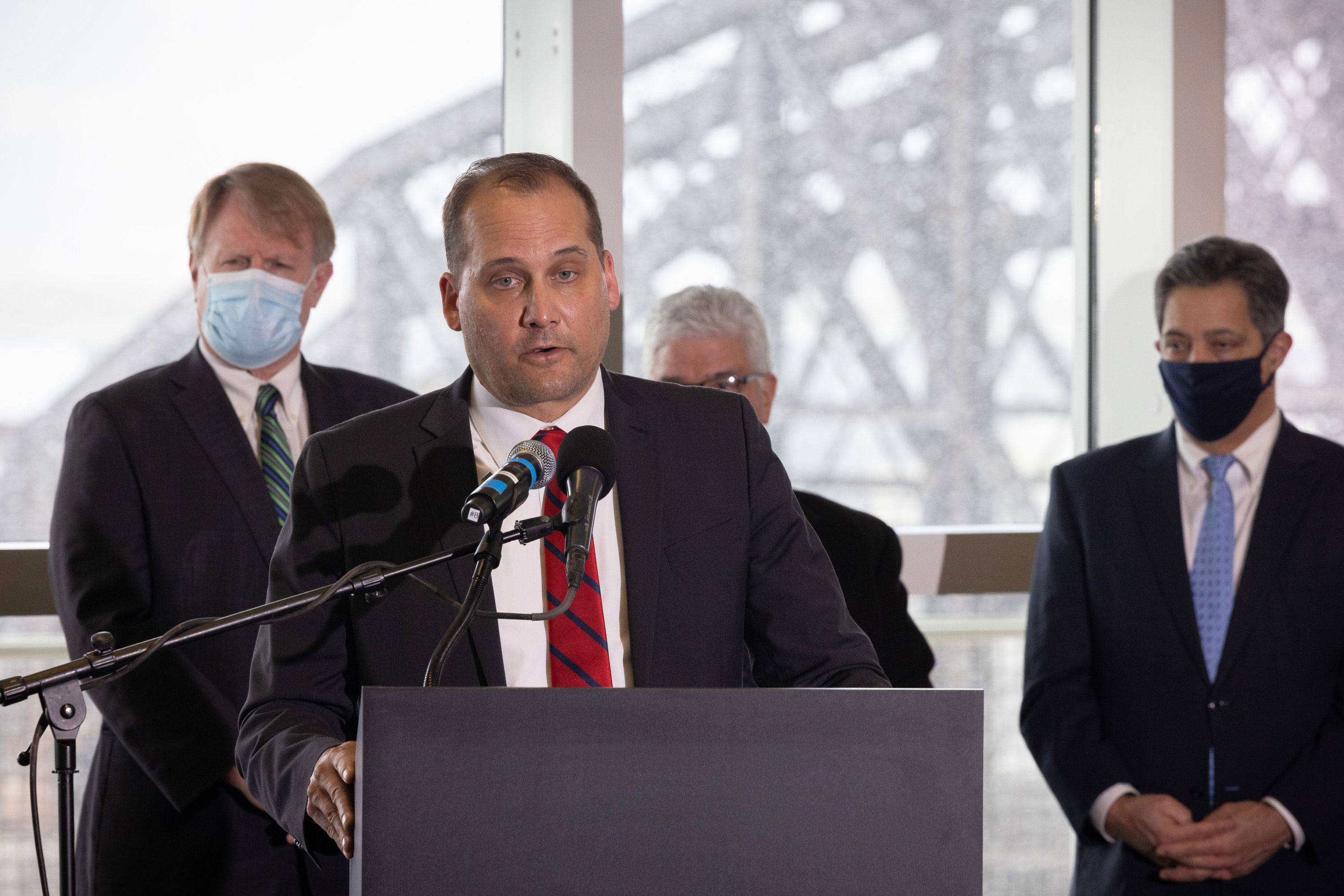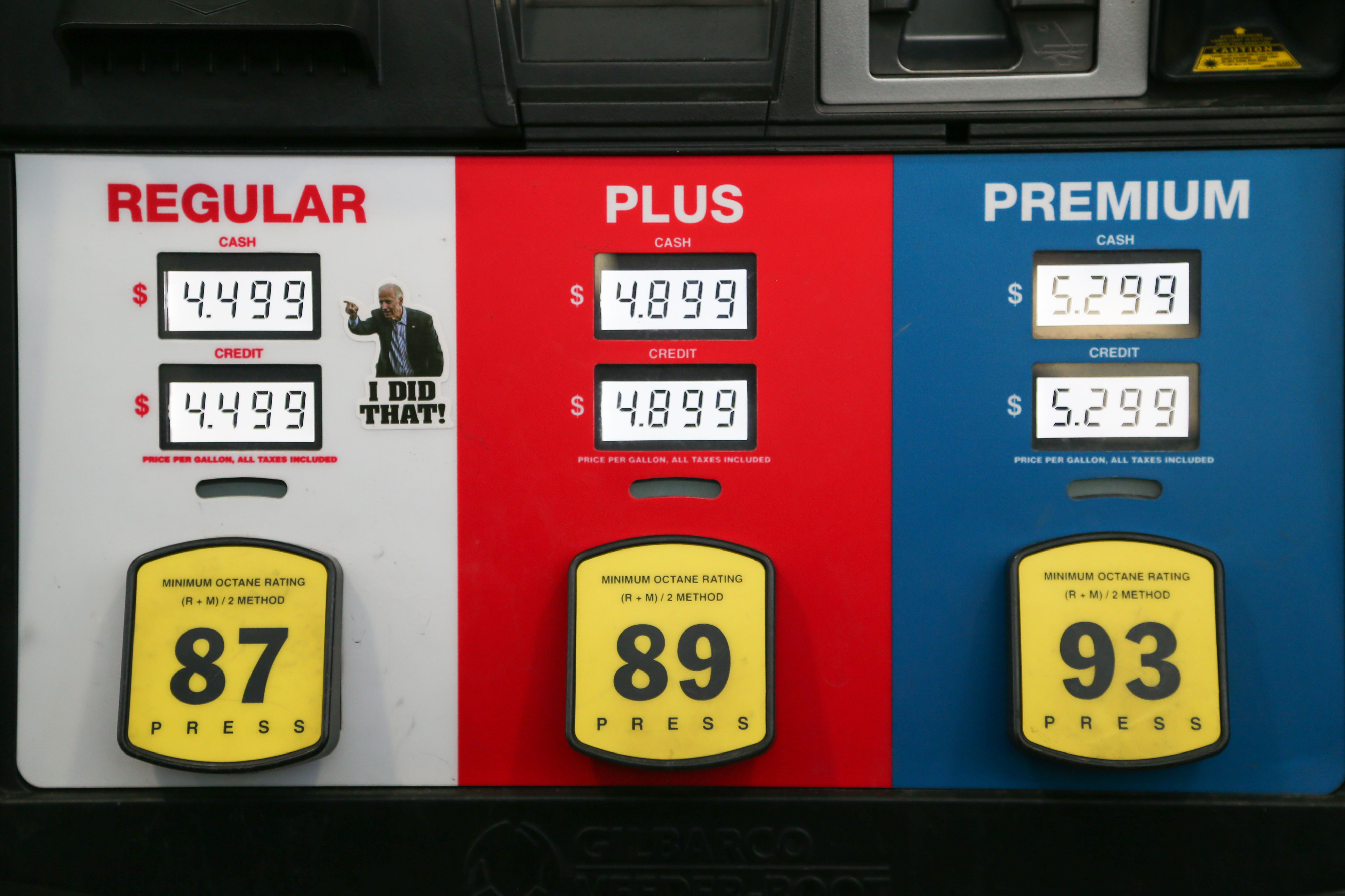Transportation
I-95 collapse spotlights issues with road and bridge funding
Numerous factors are complicating the road ahead for the state’s gas tax.

Smoke rises from a collapsed section of the I-95 highway on June 11, 2023 in Philadelphia. Photo by City of Philadelphia Office of Emergency Management via Getty Images
Pennsylvania has a gas problem.
As consumers have digested shifting gas prices throughout the pandemic – and gotten increasingly sick of paying rising prices amid inflation – Pennsylvania residents have been feeling the pain at the pump a bit more than other Americans.
Coming in at roughly 60 cents per gallon, the commonwealth’s gas tax is the second-highest in the nation, trailing only California. Despite that distinction, the Pennsylvania Department of Transportation’s road and bridge funding sources are alarmingly close to running on empty.
With a massive influx of federal infrastructure funding coming to the commonwealth, rising construction costs and an increasingly unpopular gas tax, state and transportation officials are gauging gas tax alternatives to put the state and its aging roadways on stronger short- and long-term financial footing.
“People have to understand the amount of bridges and roads we have … We have more than 25,000 state-owned bridges, most of which are over 50 years old,” state Rep. Ed Neilson, chair of the House Transportation Committee, told City & State. “We have to make sure we stretch the dollars as best we can to make safe roadways.”
The dire need for road and bridge repairs is more apparent now than ever after a bridge on I-95 in Northeast Philadelphia collapsed Sunday after a tanker truck carrying gasoline burst into flames beneath it. A months-long repair project could be just a taste of what’s to come in a commonwealth full of deteriorating infrastructure.
Neilson said nothing is off the table when it comes to alternative transportation funding streams for Pennsylvania – the state with the third-highest number of state-maintained bridges and fifth-largest state-maintained roadway network. But PennDOT’s current highway and bridge transportation funding gap – which includes more than $4 billion for repairs to the non-national highway system, more than $2 billion for interstate and national highway modernization and more than $1 billion for multimodal transportation such as freight rails, water ports, public transportation and bicycle and pedestrian travel – is estimated to be about $8.1 billion, while federal funding and match programs have remained relatively flat.
Legislators on both sides of the aisle recognize the need to get the state’s transportation funding on an efficient path forward, but they aren’t in agreement on a revenue source to fill in the gaps where the gas tax has begun to come up short.
Fuel to the Fire
The debate over the state’s gas tax isn’t new.
A decades-long debate over transportation funding came to a head in 2021 when then-Gov. Tom Wolf convened a bipartisan panel to study alternatives to the gas tax in Pennsylvania, arguing that the tax had become an unreliable source of funding. PennDOT also launched the Pathways program to examine both short- and long-term funding solutions for the department.

Lawmakers have yet to act on any of the proposals recommended by the commission but have discussed a variety of options, including a user fee for miles traveled, a fee on package deliveries and an electric vehicle fee.
A state Independent Fiscal Office report last year found that while gasoline consumption and driving behavior are expected to recover to near pre-pandemic levels, enhanced fuel efficiency and the growth of electric vehicles have led the state to project a revenue loss from the gas tax in the short term.
“As a primary source for state transportation funding, gasoline tax revenues that cannot keep pace with rising project costs could cause funding challenges for (the Department of Transportation’s) highway and bridge infrastructure program and limit access to federal reimbursement for project costs,” the IFO report said.
Harrisburg lawmakers have long sought to reform the state’s transportation funding, specifically the Motor License Fund.
The state’s Motor License Fund, which gathers revenue from license and registration fees, fines, transportation user fees and the state’s gas tax, has had part of its revenues diverted to the Pennsylvania State Police since at least 1930. The fund continues to be used to pay for state police highway safety activities to this day; about half of PennDOT’s funding also comes from the Motor License Fund.
With transportation and police spending inexplicably tied, Harrisburg officials have long had to try to answer questions regarding not just one area in need of consistent funding, but two.

“It’s an odd way to fund law enforcement. When you think about the gas tax being a user fee, it seems odd to then go and fund a public service that basically operates as a public good: safety,” Tim Vermeer, a senior policy analyst with the Tax Foundation, told City & State. “How do you subdivide the amount of benefit that people are getting from the state police? It seems to be something better suited to be funded by the General Fund than by the gas tax.”
According to PennDOT, roughly 75% of the state’s road and bridge funding comes from the gas tax. The agency didn’t provide an explanation as to why the Motor License Fund was tied to highway safety funding to begin with, but there has long been a conflict between infrastructure and public safety funding. Gas tax revenues began to decrease years ago with fuel efficiency and electric vehicle advances, but it wasn’t until the pandemic that gas prices were once again making headlines.
In the 2021-2022 cycle, the state police had a budget of $1.4 billion, 36% of which came from the Motor License Fund, according to data from the House Appropriations Committee – that $504 million represented 17% of the fund’s revenue.
New administration, same issue
Within the legislature, an outspoken opponent of gas tax increases is state Sen. Wayne Langerholc, a Republican from Cambria County who chairs the Senate Transportation Committee. To kick off the year, the Transportation Committee advanced two of Langerholc’s bills, Senate Bill 35 and Senate Bill 121.
Senate Bill 35 would stop an automatic gas tax increase in 2023 and permanently set the average wholesale price in the state to $2.99 per gallon. Senate Bill 121 seeks to ensure gas tax revenues go toward road and bridge construction while ensuring the state police receive funding from outside the Motor License Fund.
While no single revenue source will satisfy PennDOT’s funding needs, Langerholc said the priority within the Republican caucus is to ensure electric vehicles are being accounted for.

“We need to get something in place to address electric vehicles – and every day we fail to act with respect to electric vehicles, we leave money on the table,” Langerholc told City & State. “EVs have grown significantly over a four-year period. Those vehicles are using roads and bridges, and they are responsible for their contribution.”
The number of registered electric vehicles in the commonwealth grew 362% over the last four years – from 9,700 in 2019 to 44,800 in 2023 – according to PennDOT; the Biden administration has estimated roughly 50% of all vehicles sold in the country by 2030 will be electric.
New or increased fees for electric vehicles are one of a myriad of options Harrisburg officials must consider when looking at funding streams and their equitable distribution among the state’s drivers.
A mileage-based user fee, which charges drivers based on the miles traveled in a particular vehicle, a toll on corridors and managed lanes and a tax on package deliveries are among several policy suggestions that were brought up by Wolf’s commission.
Rebecca Oyler, president and CEO of the Pennsylvania Motor Truck Association, told City & State that alternatives to the gas tax must consider the state’s trucking industry, particularly small businesses that rely on local deliveries.
“When people think about the trucking industry, it’s not just 18-wheelers that are out on the highways. It’s also your local businesses like your landscape guy, your paver and garbage trucks,” Oyler told City & State.
Vermeer said that while it may be an imperfect solution, a vehicle-miles-traveled tax may be the best alternative for the state moving forward.

Such a tax “seems to fit well with the benefits principle of taxation. The big advantage of taxing gasoline at this point is that it’s a pretty good proxy for a user fee,” Vermeer said. “The efficacy of that (gas tax) is changing as vehicles get more efficient and electric vehicles come on the scene.”
The imperfections with a VMT, Vermeer said, come back to administration and privacy. The monitoring and tracking of vehicles throughout the state would incur higher enforcement and administrative costs when compared to the gas tax. Miles traveled could be tallied when vehicles go in for annual emissions testing, but the tax would then fail to collect contributions from out-of-state drivers.
Oyler said that her organization is opposed to any plan to toll interstate bridges, and that while a mileage-based user fee could be the answer, the cost of maintaining such a system could prove to be costly in the long run.
“The fuel tax – which is by far the most efficient and fair means of collecting transportation funding – costs less than a penny on the dollar to administer at the federal level and on the order of 2 to 3 cents on the dollar at the state level,” Oyler said. “Over the long term, we’re watching to see if there’s a way to make (VMTs) more fair and efficient, but paying 30% of the cost of the tax to administer the program is just going in reverse.”
Doing away with the annual transfers from the Motor License Fund to the state police would require Harrisburg lawmakers to come together on a different funding source for the police. Gov. Josh Shapiro’s administration has offered similar alternatives, suggesting that a special fund be established to fund the state police while transfers out of the Motor License Fund are capped and set to decrease over time.
Funds in the Fray
Conversations around the gas tax and infrastructure funding are much different now than they were in 2021.
That year saw the federal Infrastructure Investment and Jobs Act earmarked billions of dollars for states to address infrastructure projects from roads and bridges to airports and broadband deployment. Now, as the state searches for answers to its transportation funding future and backlog of maintenance projects, those federal dollars could be the runway the agency needs to keep up with construction costs amid the debate in Harrisburg.
At a recent groundbreaking ceremony for a bridge project in Delaware County, PennDOT Secretary Mike Carroll spoke on the importance of the federal infrastructure funding in getting the state agency’s projects back on track.
“What happens in Washington and what happens in Harrisburg affects the entire state,” Carroll said at the June 1 event. “The decision we make in Harrisburg later this month with respect to the budget, the state police’s budget and the Motor License Fund preservation of funds matters greatly … We have a laundry list of projects that need to be done – and they need to be done sooner rather than later.”
Carroll told City & State that many of the infrastructure projects being undertaken now would still be on hold if it weren’t for the influx of federal infrastructure dollars. He said that with the runway the agency has been given with the federal funds, a compromise on the Motor License Fund is in the cards.
Langerholc said barring the one-time federal funds being used for a project with recurring costs, he would support a similar approach.
“I’ve always been in favor of spending these dollars on a significant one-time project and not putting them into something that we’re gonna have to fill a hole in the budget in the coming years,” Langerholc told City & State. “We’re going to take a look at everything we can to ensure that our transportation is funded. Our public safety (funding) is paramount.”
The Road Ahead
Building a fiscally responsible transportation funding formula will be one of the first major efforts taken on by Shapiro’s administration.
The General Assembly previously placed a cap on the amount of Motor License Fund money that can be used to fund the state police back in 2016, but additional efforts to bring the cap down further than $500 million have come up short.
Shapiro’s budget proposal calls for the creation of a restricted bank account for state police that wouldn’t be subject to annual budget negotiations as well as the winding down of transfers from the Motor License Fund over the next five years. His proposal would reduce the police’s reliance on the fund by $100 million per year until transfers are eliminated in 2027-28.
“The federal money is a big help, but by itself, it doesn’t solve all our problems here,” Carroll told City & State. “That’s why the governor is eager to preserve $100 million this year and then have another $100 million each of the next five years.”
The final budget and dollar allocations will be determined in the coming weeks as legislators prepare for the June 30 budget deadline. Given the interest from both sides of the aisle in reforming the Motor License Fund, Carroll is confident it will be addressed both in the short-term and during gas tax conversations into the future.
“The challenge for us is to try and find a solution that’s achievable politically,” he said, “and that $100 million (in transfer reductions) is achievable politically.”
The governor’s proposal would result in an additional $1.5 billion in transportation funding over the next five years.
“The immediate benefit of these new funds will be critical in helping Pennsylvania meet the match requirements of the new federal infrastructure funds and will allow us take full advantage of this critical federal investment without taking funds from projects currently planned,” PennDOT spokeswoman Alexis Campbell said in a statement. “Under his budget, PSP gets certainty that their funding will be protected for the long-term, and the Commonwealth gets more money to invest in infrastructure.”
Correction: A quote from Rebecca Oyler has been corrected to show that she said that the fuel tax "costs less than a penny on the dollar to administer at the federal level."
